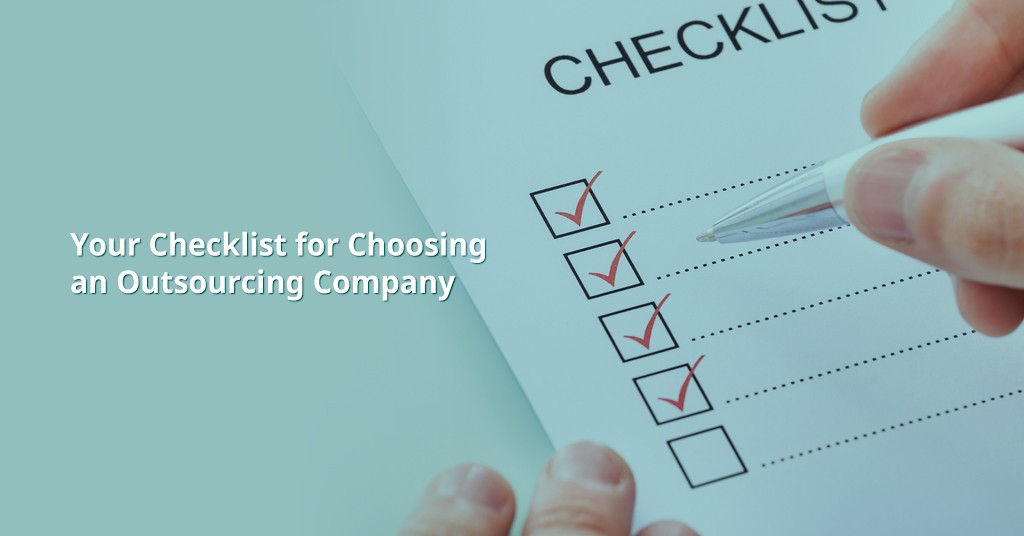Outsourcing your accounting needs can bring significant benefits to your business, including cost savings, access to expertise, and improved focus on core activities. However, with these benefits come potential risks, particularly regarding data security and confidentiality. Ensuring that your financial data is protected when outsourcing accounting services is crucial to maintaining your business’s integrity and trust.
For many businesses, managing accounting functions in-house can be a significant drain on resources and time. This is where outsourcing accounting services comes into play. In this article, we will explore essential security checks you must consider while hiring an outsourced accounting partner.
1. Data Security Policies
Comprehensive Data Security Plan
A reputable outsourced accounting partner should have a comprehensive data security plan in place. This plan should outline the measures they take to protect your data from unauthorized access, breaches, and other security threats. Ensure that the provider’s policies are robust and align with industry standards.
Regular Security Audits
The service provider should conduct regular security audits to identify and address potential vulnerabilities in their systems. Ask for details about the frequency of these audits and whether they are performed by third-party security experts.
2. Data Encryption
Encryption in Transit and at Rest
Ensure that your outsourced accounting partner uses strong encryption methods to protect data both in transit and at rest. Encryption in transit ensures that data transferred between your systems and the provider’s servers is secure. Encryption at rest protects data stored on the provider’s servers.
Advanced Encryption Standards
Verify that the provider uses advanced encryption standards, such as AES-256, which is widely regarded as highly secure. This ensures that even if data is intercepted, it remains unreadable without the proper decryption key.
3. Access Controls
Role-Based Access Control (RBAC)
The provider should implement role-based access control (RBAC) to ensure that only authorized personnel have access to sensitive financial data. This means that access to information is granted based on the user’s role within the organization, limiting exposure to only those who need it.
Multi-Factor Authentication (MFA)
Multi-factor authentication adds an extra layer of security by requiring users to provide two or more verification factors to access data. This could include something they know (password), something they have (security token), or something they are (biometric verification). Ensure that the provider uses MFA to enhance data protection.
4. Compliance with Regulatory Standards
Industry Standards and Certifications
Check if the outsourced accounting partner complies with industry standards and holds relevant certifications such as ISO 27001, SOC 2, or GDPR. These certifications indicate that the provider adheres to best practices in data security and privacy.
Compliance with Local Laws
Ensure that the provider is compliant with local laws and regulations concerning data protection. This is particularly important if you are outsourcing to an overseas provider. Understanding the legal landscape in the provider’s country is crucial to ensuring your data remains protected.
5. Data Backup and Disaster Recovery
Regular Data Backups
The provider should perform regular data backups to prevent data loss in case of system failures or cyber-attacks. Verify the frequency of these backups and the security measures in place to protect backup data.
Disaster Recovery Plan
A comprehensive disaster recovery plan is essential to ensure business continuity in the event of a data breach or natural disaster. Ensure that the provider has a detailed disaster recovery plan and can recover your data promptly and securely.
6. Third-Party Vendor Management
Vetting Third-Party Vendors
If the outsourced accounting partner works with third-party vendors, it is important to understand their vendor management policies. Ensure that they thoroughly vet these vendors and that they meet the same security standards.
Continuous Monitoring
Continuous monitoring of third-party vendors is essential to ensure they maintain high-security standards. Ask about the provider’s process for monitoring and managing their vendors to mitigate any risks.
7. Confidentiality Agreements
Non-Disclosure Agreements (NDAs)
Ensure that the outsourced accounting partner requires all employees and third-party vendors to sign non-disclosure agreements (NDAs). These agreements legally bind them to protect your confidential information and prevent unauthorized sharing.
Data Privacy Agreements
In addition to NDAs, data privacy agreements should be in place to outline the specific measures taken to protect your data. These agreements should detail how data will be handled, stored, and shared, ensuring compliance with data protection laws.
8. Security Training and Awareness
Employee Training Programs
The provider should have regular security training programs for their employees. These programs should cover best practices in data protection, recognizing phishing attempts, and responding to security incidents.
Awareness Campaigns
Ongoing security awareness campaigns can help reinforce the importance of data security within the provider’s organization. Ensure that the provider invests in continuous education and awareness to keep their team informed about the latest security threats and practices.
9. Incident Response Plan
Defined Response Procedures
A clear and well-defined incident response plan is crucial for addressing security breaches promptly and effectively. Ensure that the provider has documented procedures for identifying, reporting, and mitigating security incidents.
Communication Protocols
Effective communication is key during a security incident. Verify that the provider has established communication protocols to keep you informed about the status of any incidents and the steps being taken to resolve them.
10. Reputation and References
Client References and Reviews
Research the provider’s reputation by seeking client references and reading online reviews. Positive feedback from other clients can provide assurance about the provider’s reliability and commitment to data security.
Industry Reputation
Consider the provider’s standing within the industry. Providers with a strong reputation for security and reliability are more likely to have robust security measures in place to protect your data.
Bottom Line!
Outsourcing accounting services with MonkTaxSolutions offers significant advantages, but it also requires careful consideration of data security. By conducting thorough security checks and partnering with a reputable provider, you can mitigate risks and ensure that your financial data remains protected. From comprehensive data security policies and advanced encryption to regular audits and compliance with regulatory standards, these measures are essential for safeguarding your business’s sensitive information. By taking these steps, you can enjoy the benefits of outsourcing while maintaining peace of mind about your data’s security.





